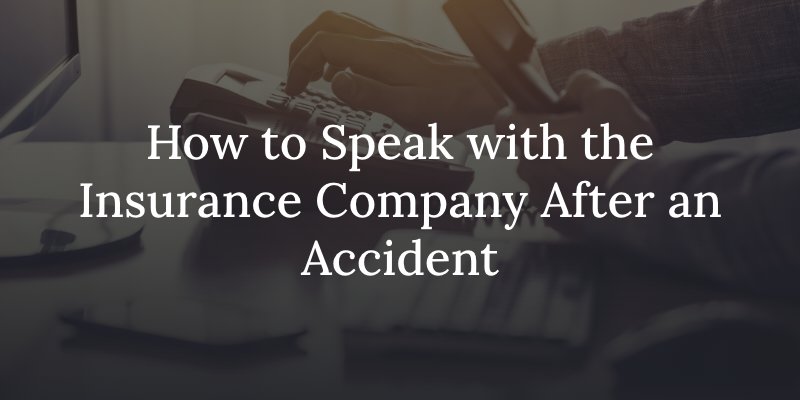
You may have seen their glossy ads or sentimental commercials, but insurance companies are not on your side after an accident. Instead, they protect their profits like all private businesses, often at the injury victim’s expense. Accidents are terrifying and cause physical, emotional, and financial trauma. These are the victim’s “damages” in a car accident injury case. All too often, the trauma continues long after the accident when an injury victim deals with delays, dodges, and denials from the insurance company of the at-fault party. It’s always best to hire a St. Louis accident attorney, but some helpful tips for dealing with insurers can help you avoid their common pitfalls.
Don’t Say Anything That Could Be Construed as Admitting Fault
Many accident victims think that admitting fault means saying, “It was my fault,” but there are many ways insurance companies claim that accident victims gave an admission of fault. Things you said at the accident scene such as, “I’m so sorry,” or “I didn’t see him coming,” may be construed as an admission of fault even if you only meant you were sorry the whole event occurred and you didn’t see the other driver coming because you had the right of way and they didn’t.
Be careful what you say to the other driver and the police at the scene of the accident so your words aren’t used against you later.
Document Evidence at the Scene
If you are severely injured in a car accident, the last thing you’re worried about at the moment is taking photos, but if you can safely use your phone or hand it to an uninjured person to use, you can quickly document critical evidence before the police move the vehicles to restore traffic flow. Take photos of the damaged vehicles, the accident scene, and anything relevant such as skid marks or the lack of skid marks. You can also use your phone to add the contact information of the other driver and critical eyewitnesses to the accident. File an accident report with the appropriate government body. Obtaining a traffic crash report is crucial for legal proceedings.
Always go to a hospital immediately after the accident to establish evidence that your injuries occurred in the accident. Be sure to keep all medical reports and bills as well as receipts for related expenses.
Don’t Agree to Speak on a Recorded Line
When you speak with an insurer, you may hear this message first, “All calls may be recorded,” but you do not have to agree to speak on the recorded line. After an accident, you should avoid speaking on a recorded line because insurance adjusters may take your casual remarks out of context and turn a simple, “I’m fine, thank you,” into an example of your admission that you were not injured in the accident.
Don’t Give The Insurance Company Medical Authorization
Insurance companies may ask for medical authorization so they can examine your injuries. Instead of granting the authorization, ask for a paper or electronic copy of only your records from your injury treatment. Granting full authorization allows the insurance adjuster to comb through your medical history to look for pre-existing conditions or previous injuries they can then claim are the true cause of your pain or symptoms.
Avoid Posting on Social Media
You may feel like sharing such important news as a car accident on social media, but it’s best to avoid posting on social media completely during your claim for damages after a car accident. If you post something like, “Thank God we’re all okay,” it can be later used against you even if you really meant you were okay except for a broken leg and a neck injury. Similarly, posting a picture of yourself at the beach may make it appear you aren’t injured even if you were smiling through your pain for the photo.
Direct All Communication With the Insurance Company to Your Attorney
Your car accident lawyer anticipates these insurance company tactics and knows how to counteract them. It’s best to hire a St. Louis personal injury attorney and direct all communication with the insurance company directly to your lawyer.

